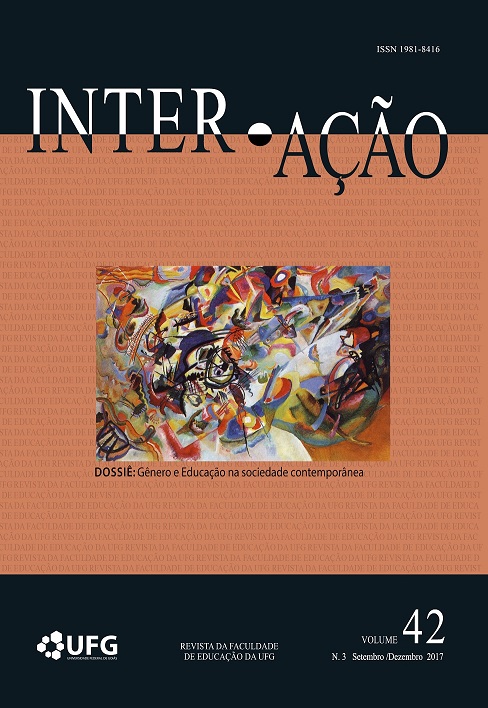OUTRA LINGUAGEM, OUTRA ALFABETIZAÇÃO: SENTIDOS DA EDUCAÇÃO EMANCIPADORA EM PAULO FREIRE
DOI:
https://doi.org/10.5216/ia.v42i3.44068Palabras clave:
Linguagem. Alfabetização. Emancipação. Paulo Freire.Resumen
O propósito deste ensaio é refletir sobre outra linguagem e outra alfabetização como forma de expressar sentidos sobre a educação emancipadora, a partir da perspectiva crítica de Paulo Freire. Como processo, movimento, acontecimento e interação, a linguagem é percebida para além de um sistema abstrato e estático. Como uma práxis vinculada à criticidade, ao ato político, à autonomia, à libertação, à conscientização, e principalmente, à humanização, a alfabetização é assumida para além do processo de ler e escrever códigos. Nesse viés, a alfabetização emancipadora, não sendo um processo mecanicista, revela potencialidades para a conscientização, enfatizando a leitura da palavramundo, com o intuito de que educadores e educandos possam “ser mais”.Descargas
Publicado
Versiones
- 2026-02-02 (2)
- 2017-12-05 (1)
Cómo citar
Número
Sección
Licencia
Derechos de autor 2018 Revista Inter Ação

Esta obra está bajo una licencia internacional Creative Commons Atribución-NoComercial 4.0.
A Inter-Ação utiliza como base para transferência de direitos a licença Creative Commons Attribution 4.0 para periódicos de acesso aberto (Open Archives Iniciative - OAI). Por acesso aberto entende-se a disponibilização gratuita na Internet, para que os usuários possam ler, baixar, copiar, distribuir, imprimir, pesquisar ou referenciar o texto integral dos documentos, processá-los para indexação, utilizá-los como dados de entrada de programas para softwares, ou usá-los para qualquer outro propósito legal, sem barreira financeira, legal ou técnica.
Autores que publicam neste periódico concordam com os seguintes termos:
1) Autores mantém os direitos autorais e concedem à revista o direito de primeira publicação, com o trabalho simultaneamente licenciado sob a Licença Creative Commons Attribution que permite o compartilhamento do trabalho com reconhecimento da autoria e publicação inicial nesta revista.
2) Autores têm autorização para assumir contratos adicionais separadamente, para distribuição não-exclusiva da versão do trabalho publicada nesta revista (ex.: publicar em repositório institucional ou como capítulo de livro), com reconhecimento de autoria e publicação inicial nesta revista.
3) Autores têm permissão e são estimulados a publicar e distribuir seu trabalho online (ex.: em repositórios institucionais ou na sua página pessoal) a qualquer ponto antes ou durante o processo editorial, já que isso pode gerar alterações produtivas, bem como aumentar o impacto e a citação do trabalho publicado.















